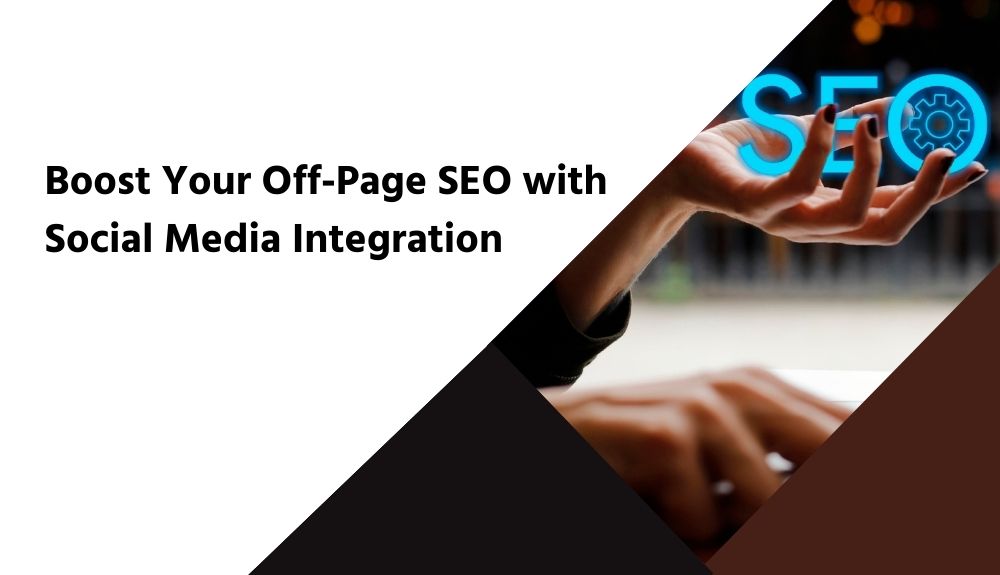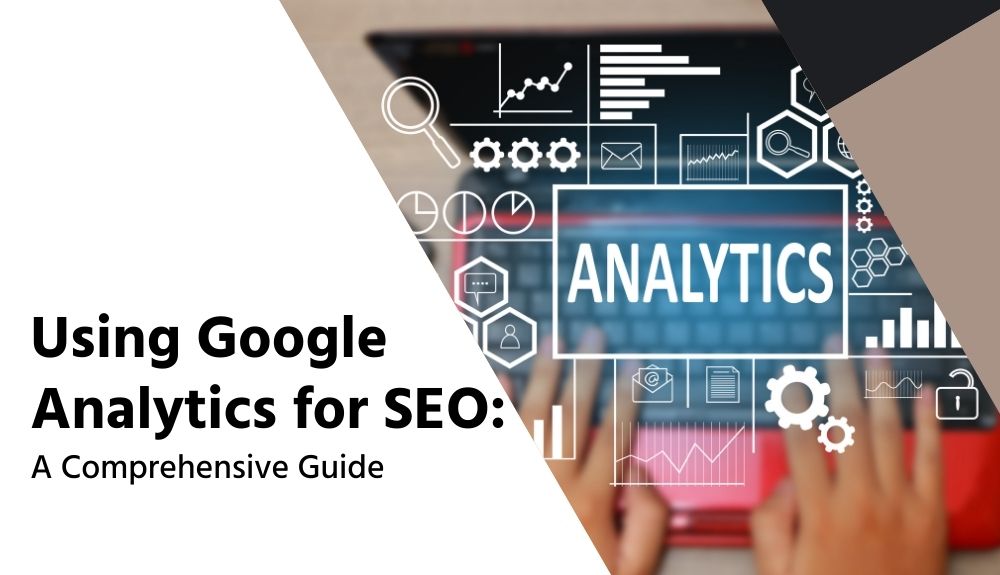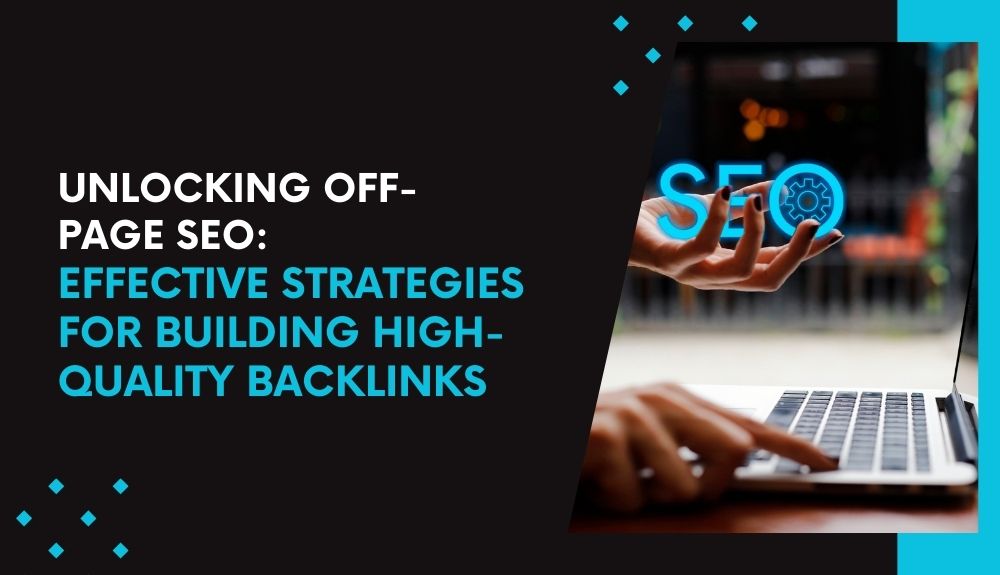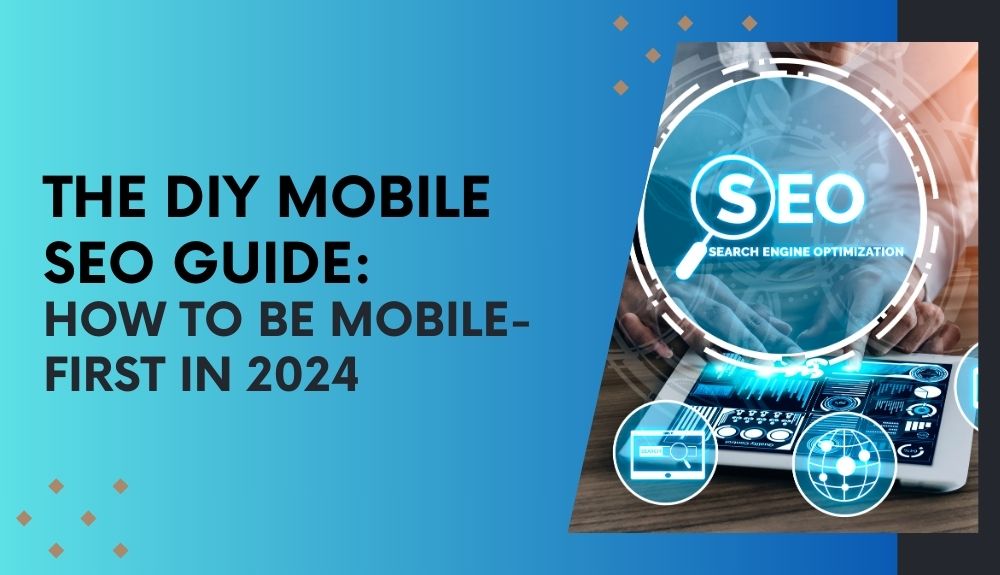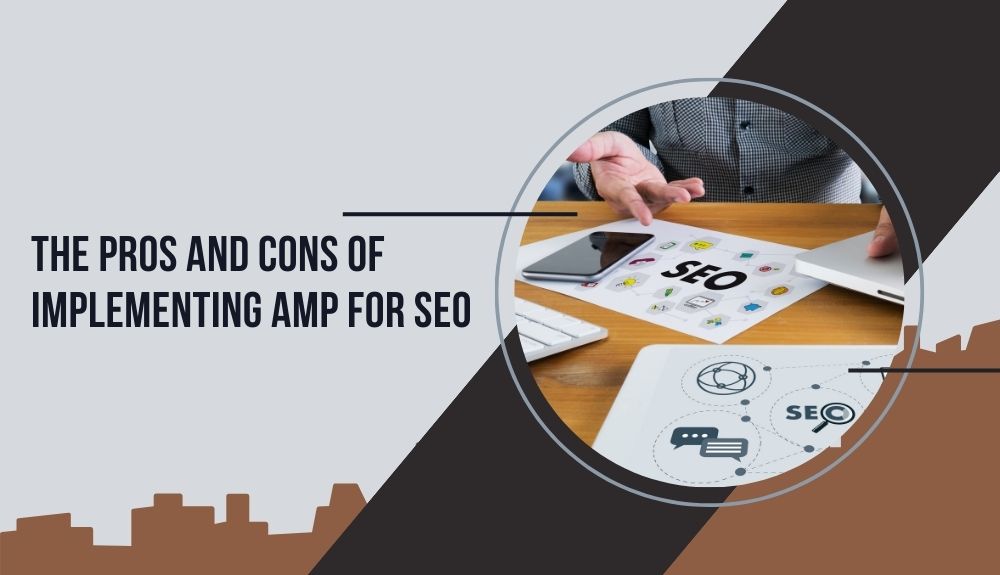Are you looking to boost your off-page SEO and improve your website’s visibility? Did you know that integrating social media into your SEO strategy can have a significant impact on your search engine rankings and organic traffic? In today’s digital age, social media platforms play a vital role in enhancing your online presence and reaching a wider audience. But how exactly does social media integration contribute to off-page SEO?
This blog will delve deep into the connection between social media and off-page SEO, uncovering strategies that can elevate your website’s search engine rankings and increase organic traffic. We’ll explore the symbiotic relationship between social media and off-page optimization, revealing the best practices for leveraging social media platforms effectively. From building high-quality backlinks to generating user-generated content and enhancing brand authority, social media integration offers a multitude of benefits for your SEO efforts.
Join us as we explore the correlation between social signals and off-page SEO success, backed by case studies and real-life examples. Discover how coordinated use of social media can elevate your website’s visibility in the ranks of search engine results pages, ensuring that your target audience finds your content easily. Dive into the world of social SEO and unlock the power of social media integration for off-page optimization.
Introduction to Social Media and Off-Page SEO
Social media has become an integral part of our daily lives, revolutionizing the way we connect and share information. But did you know that social media also plays a significant role in off-page SEO strategies? In this section, we will explore the symbiotic relationship between social media and off-page optimization techniques, highlighting the importance of leveraging social media platforms to boost website visibility and improve search engine rankings.
When it comes to off-page SEO, the emphasis is on activities that happen outside your website but ultimately impact its online presence. Social media platforms provide powerful tools for promoting high-quality content, building brand authority, and engaging with a wider audience.
By strategically incorporating social media into your off-page optimization efforts, you can increase the chances of your website appearing in the top search results, attracting organic traffic, and ultimately boosting your online presence.
Here are a few key benefits of integrating social media into your off-page SEO strategies:
1. Increased visibility: Sharing your website’s content on social media platforms can expose it to a broader audience, increasing its chances of being discovered and shared.
2. Building quality backlinks: Social media platforms provide opportunities for generating quality backlinks to your website. When your content is shared and linked to by others, it signals to search engines that your website is valuable and trustworthy.
3. Enhanced social signals: Likes, shares, comments, and engagement on social media serve as social signals, indicating to search engines that your content is authoritative and relevant.
In the following sections, we’ll delve deeper into how social media can positively impact off-page SEO efforts and explore the best practices for integrating social media into your overall SEO strategy. So let’s dive in and discover how to harness the power of social media to supercharge your off-page SEO.
What is Social Media SEO?
Social Media SEO refers to the process of utilizing social media platforms to enhance off-page optimization techniques. It involves leveraging the power of social signals and user-generated content to influence search engine rankings and boost website visibility. By integrating social media into your SEO strategy, you can tap into a wider audience, increase brand awareness, and drive organic traffic to your website.
The Role of Social Signals
Social signals, such as likes, shares, and comments on social media posts, play a significant role in determining the relevance and popularity of content. Search engines like Google take these signals into account when ranking web pages in search results. The more social engagement your content receives, the higher its chances of appearing among the top search results.
User-Generated Content and SEO
User-generated content, including reviews, testimonials, and social media mentions, can have a profound impact on your website’s SEO. When users create content related to your brand or products, it adds credibility and trustworthiness to your online presence. User-generated content also generates valuable backlinks, which are essential for off-page SEO and improving search engine rankings.
Social Media as a Powerful Tool
Social media platforms provide an excellent opportunity to engage with your target audience and promote high-quality content. By sharing your website’s content on social media, you can increase its visibility and reach a broader audience. Additionally, the coordinated use of social media channels allows for cross-promotion and the creation of a strong online presence.
In conclusion, social media SEO involves leveraging social signals, user-generated content, and the power of social media platforms to improve off-page optimization. By incorporating social media into your SEO strategy, you can enhance search engine rankings, increase website visibility, and attract organic traffic. Remember to focus on creating valuable content that resonates with your audience and encourages social engagement.
The Impact of Social Media on Off-Page SEO
Social media has become an integral part of our daily lives, and its influence extends beyond just social interactions. In fact, it plays a significant role in off-page search engine optimization (SEO). By leveraging the power of social media platforms, businesses can enhance their website’s visibility, improve search engine rankings, and drive organic traffic. Let’s delve into the ways in which social media positively impacts off-page SEO efforts.
Building Brand Authority and Social Signals
Social media provides a platform for businesses to establish their brand authority and credibility. When users engage with a brand’s social media presence, it sends positive signals to search engines. Each like, share, and comment serves as a vote of confidence, indicating that the brand’s content is valuable and relevant. These social signals play a crucial role in search engine algorithms, influencing the rankings of a website’s content on the search engine results page (SERP).
Generating Quality Backlinks
The coordinated use of social media and content marketing can attract high-quality backlinks to a website. When businesses create and share high-quality content through social media channels, it increases the likelihood of other websites linking back to this content. Backlinks from reputable sources are seen as a “vote of confidence” by search engines and can significantly impact a website’s rankings on the SERP.
Expanding Reach and Exposure
Social media platforms offer the opportunity to reach a wider audience beyond traditional SEO strategies. By sharing valuable and engaging content, businesses can attract the attention of potential customers who may not have discovered their website through search engines alone. Additionally, the viral nature of social media shares can expose businesses to new audiences, expanding their online presence and driving more organic traffic.
Encouraging Community Engagement
Building a vibrant and engaged community on social media fosters meaningful interactions with customers and potential clients. By actively engaging with followers, responding to comments, and addressing concerns, businesses can establish trust and credibility. Positive interactions and reviews on social media platforms contribute to a strong online reputation, further enhancing the impact of off-page SEO efforts.
Real-World Examples
Several businesses have successfully leveraged social media to bolster their off-page SEO strategies. For instance, a law firm regularly shares informative blog posts on their social media profiles, attracting a wider audience and generating backlinks from legal resources. Similarly, a rain boot brand gained significant exposure by creating captivating YouTube videos that not only ranked high on search engine results but were also widely shared on social media, leading to increased brand visibility and organic traffic.
In conclusion, social media plays a significant role in off-page SEO strategies. By building brand authority, generating quality backlinks, expanding reach, and encouraging community engagement, businesses can effectively enhance their website’s visibility and improve search engine rankings. The symbiotic relationship between social media and off-page SEO should not be overlooked, as it presents a powerful tool for driving organic traffic and growing online presence.
Top Social Media Platforms for Off-Page SEO
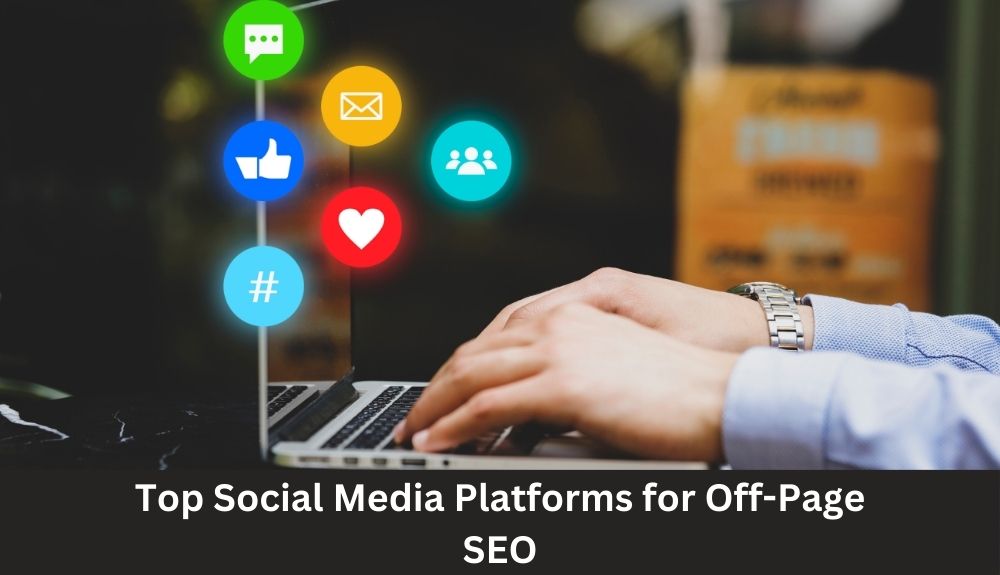
When it comes to off-page SEO, leveraging social media platforms can significantly impact your website’s search engine rankings and increase organic traffic. Let’s explore the top social media platforms that can be utilized for off-page optimization purposes and how they contribute to your overall SEO strategy.
YouTube
As the second largest search engine after Google itself, YouTube is a powerful platform for off-page SEO. By creating and optimizing high-quality video content, you can improve your website’s visibility, reach a wider audience, and enhance your brand authority. Additionally, YouTube videos often appear in Google search results, providing an opportunity to rank higher and attract more organic traffic.
With the recent growth in visual content consumption, Instagram has become an essential platform for off-page SEO. By sharing captivating images and videos related to your niche, you can increase brand awareness, engage your target audience, and drive traffic to your website. Remember to optimize your Instagram profile and use relevant hashtags to improve discoverability.
As the largest social media platform, Facebook offers numerous opportunities for off-page optimization. By creating a Facebook page for your business or brand, you can share relevant content, engage with your audience, and drive traffic back to your website. Additionally, Facebook’s algorithm favors high-quality and engaging posts, which can lead to increased visibility and organic reach.
If you’re targeting a professional audience, LinkedIn is the ideal platform for off-page SEO. By establishing a strong presence on LinkedIn and sharing industry-specific content, you can enhance your authority, build relationships with other professionals, and generate quality backlinks to your website. LinkedIn also offers targeted advertising options to further amplify your off-page SEO efforts.
While often overlooked, Pinterest can be a valuable platform for off-page optimization, especially for businesses in the e-commerce, fashion, or lifestyle industries. By creating visually appealing pins with optimized descriptions and using relevant keywords, you can drive traffic to your website and improve your search engine rankings. Pinterest’s long-lasting nature and high referral potential make it an excellent choice for increasing the lifespan of your content.
Reddit, a community-driven platform, offers unique opportunities for off-page SEO. By actively participating in relevant subreddits and providing valuable insights and recommendations, you can establish yourself as an industry expert. Genuine engagement and contribution can lead to high-quality backlinks and increased visibility within the Reddit community and even beyond.
TikTok
As one of the fastest-growing social media platforms, TikTok presents a new frontier for off-page SEO. By creating short, engaging videos tailored to your target audience, you can increase brand awareness, drive traffic, and even go viral. TikTok’s algorithm places emphasis on user engagement, making it a valuable platform for reaching a younger demographic and gaining exposure.
Quora
While not traditionally thought of as a social media platform, Quora serves as a hub for questions and answers, enabling you to provide expert insights and build credibility in your niche. By answering relevant questions and linking back to your website for further information, you can attract organic traffic, improve your website’s authority, and enhance your off-page SEO efforts.
By strategically utilizing these top social media platforms, you can maximize your off-page SEO efforts, improve search engine rankings, and drive organic traffic to your website. Remember to tailor your content and engagement strategies to each platform, ensuring consistency and relevance to your target audience.
Integrating SEO and Social Media
In today’s digital landscape, integrating SEO and social media is vital for maximizing results and driving organic traffic to your website. By aligning your social media efforts with SEO strategies, you can enhance your online presence, increase visibility, and improve search engine rankings. Here are some effective strategies to integrate SEO and social media:
Streamlining Social Media SEO Strategies
To streamline your social media SEO strategies, start by conducting thorough keyword research. Identify relevant keywords and incorporate them into your social media posts, profiles, and content. This will help search engines understand the context of your content and improve its visibility in search results.
Another key aspect of streamlining social media SEO is optimizing your social media profiles. Ensure that your profiles contain accurate and up-to-date information, including your website URL and relevant keywords. Utilize appropriate meta tags, such as meta descriptions and meta titles, to optimize your social media profiles for search engines.
Leveraging Keyword Ideas from Social Media Platforms
Social media platforms offer a wealth of keyword ideas that can inform your overall SEO strategy. Monitor the hashtags, topics, and discussions related to your industry on platforms like Twitter, Instagram, and LinkedIn. By analyzing these conversations, you can identify trending keywords and incorporate them into your content.
Additionally, pay attention to the questions and concerns raised by your target audience on social media. This valuable feedback can provide insights into the content gaps you can fill on your website, allowing you to create valuable content that meets the needs of your audience.
Creating SEO-friendly Social Media Posts
When crafting social media posts, prioritize quality and relevancy. Use engaging visuals, compelling captions, and relevant hashtags to optimize your posts for search engines. Incorporate keywords naturally into your post content, ensuring they appear in the title and throughout the body.
Furthermore, encourage social media engagement by inviting your audience to like, share, and comment on your posts. This increased engagement signals to search engines that your content is valuable and can positively impact your search engine rankings.
Measuring and Analyzing Results
To determine the effectiveness of your integrated SEO and social media efforts, regularly analyze your social media analytics and website data. Monitor metrics such as reach, engagement, website traffic, and conversions. Use these insights to refine your strategies and make data-driven decisions to improve your SEO and social media performance.
In conclusion, integrating SEO and social media can significantly enhance your website’s visibility, search engine rankings, and organic traffic. By streamlining your social media SEO strategies, leveraging keyword ideas from social media platforms, creating SEO-friendly social media posts, and measuring your results, you can optimize your overall online presence and achieve better results in the competitive digital landscape.
Optimizing Content for Social Media SEO
In the world of digital marketing, optimizing your content for social media SEO is crucial to drive engagement, increase brand visibility, and improve your website’s search engine rankings. Here are some valuable tips and best practices to enhance your content’s performance on social media platforms:
1. Utilize Hashtags Strategically
Hashtags play a significant role in categorizing your content and making it discoverable by a wider audience. Research popular and relevant hashtags in your industry and incorporate them into your social media posts. This helps improve visibility and reach, as users searching for specific hashtags are more likely to come across your content.
2. Incorporate Keywords in Your Captions and Descriptions
Just like with traditional SEO, keyword optimization plays a crucial role in social media SEO. Identify relevant keywords related to your content and incorporate them naturally into your captions, descriptions, and post content. This helps search engines understand the context of your content and improves its chances of appearing in the top search results.
3. Engaging Visuals and Multimedia
Visuals grab attention and increase user engagement. Use high-quality images, videos, infographics, and other multimedia elements to make your content more appealing and shareable. Visual content tends to get more likes, shares, and comments, which can improve your overall social media SEO.
4. Craft Compelling and Shareable Content
Create high-quality content that resonates with your audience. Focus on delivering value, providing helpful insights, and answering their questions. When your content is informative, entertaining, or inspiring, users are more likely to engage with it and share it with their network, which can lead to increased visibility and improved social media SEO.
5. Optimize the Length and Format of Your Posts
The length and format of your social media posts can impact their visibility and engagement. Keep your captions concise and to the point, highlighting the key message or call-to-action. Experiment with different post formats, such as lists, quotes, or questions, to keep your content fresh and engaging.
By implementing these best practices, you can optimize your content for social media SEO, making it more discoverable, engaging, and shareable on various platforms. Remember to analyze your social media metrics using analytics tools to measure the effectiveness of your strategies and make necessary adjustments for continuous improvement.
Measuring and Analyzing Social Media SEO Results
Measuring and analyzing the effectiveness of your social media SEO efforts is crucial to ensure that you are on the right track and making informed decisions. By utilizing analytics tools and interpreting the data, you can gain valuable insights into the impact of your social media strategies on your search engine optimization efforts.
One of the key reasons for measuring social media SEO results is to determine the success of your campaigns. By analyzing the data, you can assess the level of engagement, reach, and visibility that your social media posts are generating. This information can help you identify which strategies are working effectively and which ones may need adjustment.
Analytics tools provide a wealth of metrics that can be used to evaluate the performance of your social media SEO. Tracking metrics such as impressions, clicks, likes, shares, and comments can provide valuable insights into the reach and engagement of your posts. By monitoring these metrics, you can identify trends, patterns, and areas for improvement.
Additionally, measuring social media SEO results allows you to track the impact of your social media efforts on website traffic and conversions. By integrating web analytics tools like Google Analytics with your social media accounts, you can monitor the traffic coming from social media platforms. This data can help you assess the effectiveness of your social media SEO strategies in driving organic traffic to your website.
Interpreting the data gathered from analytics tools is key to making informed decisions. By analyzing the metrics, you can identify which social media platforms are performing well and which ones require optimization or further attention. This analysis can also help you identify the type of content that resonates most with your audience and refine your social media SEO approach accordingly.
In conclusion, measuring and analyzing the results of your social media SEO efforts is essential for optimizing your strategies and achieving success. By using analytics tools, tracking relevant metrics, and interpreting the data, you can make data-driven decisions that enhance your overall search engine optimization efforts. Be proactive in assessing the performance of your social media SEO to continually refine and improve your strategies.
Best Practices for Social Media Off-Page SEO

Leveraging social media for off-page SEO can significantly boost your website’s visibility and enhance your search engine rankings. To effectively integrate social media into your off-page SEO strategies, it’s essential to follow these best practices:
Consistency is Key
Maintaining an active and consistent presence on social media channels is crucial. Regularly post high-quality content that aligns with your target audience’s interests and expectations. Consistency demonstrates your commitment and engages your followers, increasing the likelihood of social shares and backlinks to your website.
Optimize Your Social Media Profiles
Optimizing your social media profiles is a vital aspect of off-page SEO. Incorporate relevant keywords, a concise yet compelling description, and a link to your website in your profiles. This optimization helps search engines understand the relevance of your social media presence and increases the likelihood of your profiles appearing in search results.
Harness the Power of Hashtags
Hashtags are an effective way to expand the reach of your social media content. Research trending hashtags relevant to your industry and incorporate them in your posts. Additionally, create branded hashtags to increase brand awareness and encourage user-generated content. Strategic use of hashtags will help your content gain visibility and attract a wider audience.
Emphasize Quality Over Quantity
While regular posting is essential, it’s equally crucial to prioritize quality over quantity. Ensure that each piece of content you share on social media is valuable, informative, and engaging. High-quality content is more likely to be shared and linked to, increasing your website’s visibility and authority.
Foster Community Building and Engagement
Building a community around your brand on social media can significantly impact your off-page SEO efforts. Encourage meaningful interactions, respond to comments and messages promptly, and show genuine interest in your audience’s opinions. Engaged followers are more likely to share your content and recommend your brand, leading to increased backlinks and social signals.
By implementing these best practices, you can leverage the power of social media to enhance your off-page SEO strategies, improve search engine rankings, and increase organic traffic to your website. Consistency, optimization, hashtags, quality content, and community building should be integral components of your social media off-page SEO approach.
Remember, off-page SEO is an ongoing process, so continuously evaluate and adjust your strategies based on analytics and industry trends to ensure optimal results.
Conclusion
In conclusion, integrating social media into your off-page SEO strategies can greatly benefit your website’s search engine rankings, visibility, and organic traffic. By leveraging the power of social media platforms, you can effectively enhance your online presence and engage with your target audience in meaningful ways.
Throughout this article, we have explored the symbiotic relationship between social media and off-page SEO. We have seen how social signals and user-generated content play a significant role in influencing search engine algorithms and ultimately, the ranking of your website in search engine results pages.
By utilizing the top social media platforms such as YouTube, Instagram, Facebook, LinkedIn, Pinterest, Reddit, TikTok, and Quora, you can further extend the reach of your off-page optimization efforts. Each platform provides unique opportunities to connect with a wider audience and generate valuable backlinks to your website.
Integrating SEO and social media requires strategic planning and consistent efforts. By streamlining your social media SEO strategies, you can identify relevant keywords, create high-quality content, and drive engagement with your target audience.
Remember to optimize your content specifically for social media platforms by incorporating relevant hashtags, keywords, and engaging visuals. Regularly measure and analyze the results of your social media SEO efforts using analytics tools, and make informed decisions that drive continuous improvement.
Incorporating social media into your off-page SEO strategies is not only a powerful tool for enhancing your website’s visibility but also for building brand awareness, establishing authority, and driving organic traffic. By following best practices and staying updated with the ever-evolving world of search engines, you can stay ahead of the competition and achieve long-term success.
Start leveraging the potential of social media today and unlock new opportunities for your website’s growth and impact.

